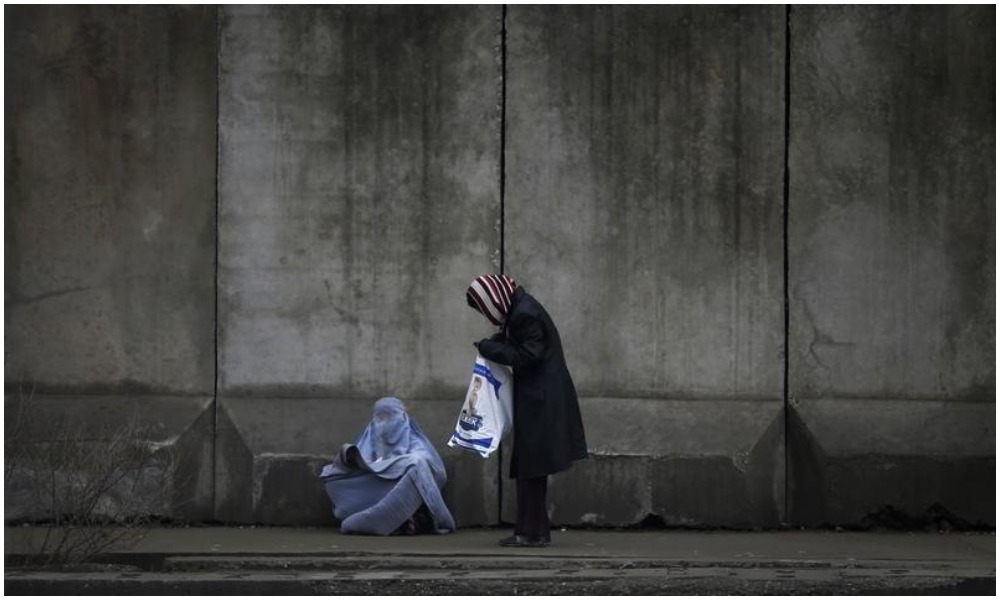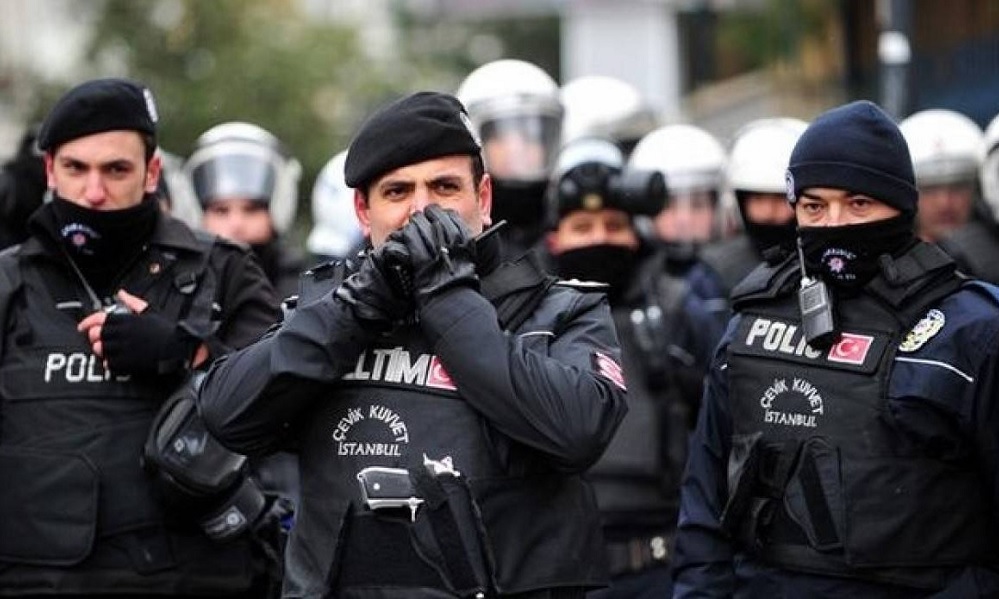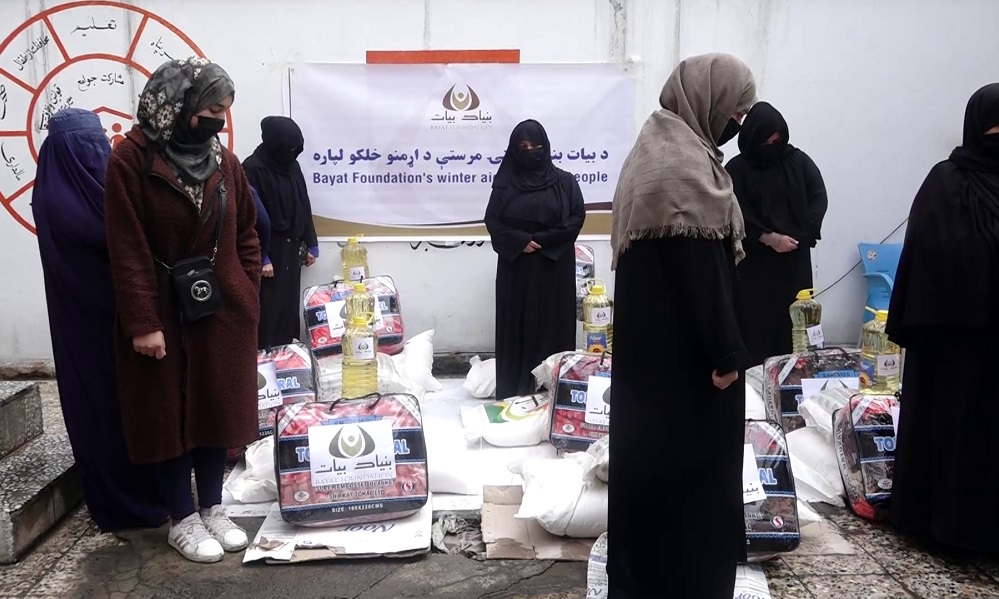Latest News
Afghan dire humanitarian situation demands urgent support from int’l community: official

Afghanistan has faced a dire humanitarian situation over past few months, which urges the international community to take immediate actions to support the humanitarian response in the region, said an official of the International Committee of the Red Cross (ICRC) on Thursday, Reuters reported.
Last August, the chaotic withdrawal of U.S. troops from Afghanistan added more woes to the country following two decades of war.
According to Reuters following the hasty pullout, the U.S. government quickly froze nearly 9.5 billion U.S. dollars in national foreign exchange assets from the Afghan central bank held in the United States, further aggravating the already dire humanitarian crisis in Afghanistan.
Last year, the United Nations World Food Programme (WFP) warned that Afghanistan is facing “an avalanche of hunger and destitution”, with 98 percent of the population lacking adequate food.
The ICRC Director-General Robert Mardini elaborated on his experience in Afghanistan after visiting there in February of last year, read the report.
“It is very severe. It’s very difficult to have exact figures. But we see more and more people in the streets, selling their few belongings to be able to put food on the table. We see more and more people seeking daily jobs. The situation is very dire. The economic system is on the brink of collapse. The vast majority of banks are not working. It’s very hard for people to get funds. The vast majority of civil servants today in Afghanistan are simply not getting their salaries. So, you can imagine the ripple effect when a family relies on, eight members of a family rely on a salary, how hard daily life is for Afghans today,” he said.
He believes that the current extreme situation in Afghanistan should be attributed to a combination of factors including warfares and climate change.
“This is the consequence of four decades of armed conflict that really brought the country in a very dire state. And then the effects of climate change are also at the same time and concurrently hitting Afghanistan, with the cycles of drought and floods that are more intense, more frequent. And of course, this is putting huge pressure on the food production in the country and the ability of Afghans to sustain their own needs. And the fact today that the international community and the vast majority of development agencies unplugged their support to Afghanistan since August last year, a country that relies heavily on international aid, of course, is bringing many of the critical services that 40 million Afghans rely on, at the brink of collapse,” he said.
The ICRC director-general also called on the international community to scale up support to humanitarian efforts in Afghanistan to avoid a humanitarian catastrophe in the region, Reuters reported.
“Afghans have experienced four decades of armed conflict, repeated cycles of drought, putting their food security at risk. And I think it’s fair to say that no family has been spared by the effect of war. And while the day-to-day security has improved over the past months, Afghans face acute needs in humanitarian, but also in socio-economic terms. And this is not the time for the international community to forget Afghanistan. The well-being of the Afghan people should really lie above politics. And the ICRC is really committed and will consistently call for proper international attention and funding to ensure that public services that are critical to the survival of the civilian population be preserved in the country and the economic collapse is avoided,” said Mardini.
Latest News
Turkish intelligence captures a Daesh member near the Durand Line

Turkish intelligence agents have captured a senior member of Daesh near the Durand Line, reportedly preventing planned suicide attacks in Turkey and other countries, according to Turkey’s state-run Anadolu Agency on Monday.
The suspect, identified as Mehmet Goren, is a Turkish citizen. He was apprehended during a covert operation and transferred to Turkey. Details on the timing of the operation or the involvement of Afghan and Pakistani authorities were not disclosed.
According to the report, Goren had risen through the ranks of Daesh and was allegedly tasked with carrying out suicide bombings in Turkey, Pakistan, Afghanistan, and Europe.
Daesh has a history of deadly attacks in Turkey, including the January 1, 2017 shooting at an Istanbul nightclub that killed 39 people.
Anadolu Agency reported that Goren’s arrest also provided intelligence on the group’s recruitment strategies and planned activities.
Latest News
Dozens of needy families in Kabul receive winter aid from Bayat Foundation

Dozens of needy families in Kabul’s fifth district have received essential winter assistance from the Bayat Foundation, as part of ongoing efforts to ease hardship during the cold season and worsening economic conditions.
According to foundation officials, the aid package includes staple food items such as flour, rice, and cooking oil, along with warm blankets to help families cope with freezing temperatures. Haji Mohammad Ismail, Deputy Head of Bayat Foundation, said the distribution began in Kabul and will soon be expanded to other provinces.
“Our assistance includes flour, rice, cooking oil, and blankets,” Ismail said. “Today, we started distributing these items in Kabul’s fifth district, and God willing, the aid will reach other provinces in the near future.”
Afghanistan continues to face widespread poverty, unemployment, and food insecurity, with many families struggling to meet basic needs, particularly during winter when access to work and heating becomes more difficult.Humanitarian organizations and charitable foundations have stepped up relief efforts to support those most affected.
Beneficiaries welcomed the assistance, describing it as a lifeline. “May God bless you for helping the poor. We had nothing and no work,” said one recipient. Another added, “Thank you for your help. Our flour was almost finished.”
Bayat Foundation officials stressed that winter aid distributions will continue in Kabul and other provinces in the coming days, as part of their broader commitment to supporting needy families across the country.
Latest News
Nearly seven million Afghan refugees return home since Islamic Emirate’s takeover

Since the Islamic Emirate came to power, approximately 6.8 million Afghans have returned home, either voluntarily or forcibly, from neighboring countries and other nations, according to the Minister of Refugees and Repatriation.
Mawlawi Abdul Kabir, speaking at a meeting on finalizing a draft plan for a permanent migration solution in Afghanistan, added that 1.3 million Afghans have been internally displaced due to natural disasters during the same period.
With winter approaching, widespread poverty and severe cold are threatening thousands of lives. Meanwhile, the forced expulsion of Afghan migrants from neighboring countries, particularly Iran and Pakistan, continues.
The Islamic Emirate has repeatedly urged neighboring states to allow migrants to return voluntarily. According to UNHCR, over two million Afghans have returned from Iran and Pakistan since the start of 2025.
-

 Latest News3 days ago
Latest News3 days agoAfghan border forces prevent illegal entry of hundreds into Iran
-

 Latest News3 days ago
Latest News3 days agoPakistan summons Afghan diplomat over deadly attack in North Waziristan
-

 Latest News2 days ago
Latest News2 days agoAfghan health minister calls for medical cooperation between Kabul and New Delhi
-

 Latest News1 day ago
Latest News1 day agoAfghanistan signs 30-year deal for marble mining in Daikundi
-

 Latest News3 days ago
Latest News3 days agoJapan allocates nearly $20 million in humanitarian aid for Afghanistan
-

 Latest News2 days ago
Latest News2 days agoKarzai urges reopening of girls’ schools and universities for Afghanistan’s bright future
-

 Health5 days ago
Health5 days agoAfghanistan seeks India’s support in standardizing traditional medicine
-

 World5 days ago
World5 days agoUS readies new Russia sanctions if Putin rejects peace deal, Bloomberg News reports
























